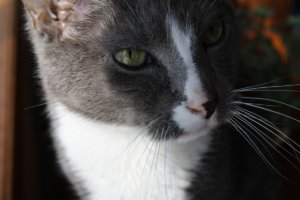Contributed by Natalie Haglund, consultant to CAIRE Inc.~
I’ve been thinking about support systems lately. Thankfully, I have many. They were in place prior to my interstitial lung disease (ILD) diagnosis, and they have continued to show up in full force after diagnosis.
Why is this important? Being diagnosed with a serious lung disease is devastating physically, mentally, emotionally, and financially. Trying to navigate it all alone can be overwhelming and stressful.
We don’t inherently think about what support systems we have in place and how to utilize them. Some folks have more supports than others, and each person’s needs vary. It may be difficult to ask for help or sort out who to ask for different types of help. What if you are a caregiver, loved one, or friend of someone who has a chronic lung disease? Knowing what to do to help also isn’t inherently known. To paint a picture of this I can only speak to my experience, and hopefully give you some applicable takeaways.
Often when we think of a support system the first thing that comes to mind is family and friends. I think I could write a book about all the things my friends and family have done for me. Going with me to appointments and surgeries, bringing groceries and meals, staying away when they’re feeling ill (so I don’t get ill), modifying outings and activities to meet my physical needs, sending cards and electronic messages, listening to me, crying with me, and laughing with me.
They even leave me surprises on my porch. Gifts, flowers in the summer, a meal, groceries. My daughter was a teenager when I was diagnosed with ILD. I don’t know what I would’ve done without her father, our families, and even her best friends’ families. Not only was this a support system for me, but also for her. So many blessings during such a difficult time.
My healthcare team is also a key player in the mix. From primary care to the specialists I see. Standard of care for interstitial lung disease is a pulmonologist who specializes in ILD at a center for excellence. I have had a top-notch pulmonologist at an ILD clinic for the past eight years. I just can’t say enough about this, and I’ve been able to live life again because of the care I’ve received. My healthcare team has also been a great resource for education about my lung disease, medications, lifestyle, and mental health.

I’d like to dedicate this month’s blog to my pal Ed the cat. He was almost 15 years old when he crossed the rainbow bridge in July. I didn’t realize how much of a source of comfort and calm he was until after he passed. Ed was the best kitty.
I’ve developed a lot of anxiety related to my lung disease. This past year I’ve been seeing a palliative care doctor. Palliative care is often associated with end-of-life care, but that’s not always the case. Palliative care is based on a person’s diagnosis, not their prognosis (outcome). I’ve learned how to recognize and manage anxiety related to my lung disease through different techniques. There are many other therapies and resources that palliative care offers, dependent on each person’s needs. To learn more about palliative care near you, talk to your primary care doctor or pulmonologist.
Peer support is another part of my support system. It first started (unexpectedly) when I went through pulmonary rehab six years ago. I wasn’t expecting to form such a connection with other participants but am so happy I did! After completing pulmonary rehab, I started exploring online support groups as there aren’t any in person groups in my (rural) area. There have been a couple that weren’t quite a fit for me, but I now have a few favorites. In these groups I’ve found support, helpful insights, and have been inspired by other people’s accomplishments. These groups also offer educational resources, activities, and interactive webinars that I enjoy participating in. See links below and check them out!
Support can come from an employer, co-workers, cultural or faith-based organizations. Living with a serious lung disease can feel isolating and lonely at times. Forming connections with others can help alleviate some of that. If you are a caregiver, loved one, or friend, don’t be afraid to just do something. Drop off a meal, offer a ride to an appointment, or weed the garden. What may seem like a small act of kindness can mean so much to someone who is physically and mentally overwhelmed.
Natalie Haglund, 50, diagnosed with Idiopathic NSIP (a type of interstitial lung disease), lives in northern Minnesota where she works as a Licensed Practical Nurse (LPN) in the operating room. She enjoys photography, hiking, concerts, crafty projects, and time with her 23-year-old daughter, friends and family.
If you have been prescribed oxygen therapy, learn more about CAIRE by visiting www.caireinc.com/patients or by calling 1-800-482-2473 to talk to an oxygen advisor.
The contents of this blog post are not intended to substitute for professional medical advice. Please consult your physician for personalized medical advice. When using any oxygen therapy device please consult the applicable product instructions for use for product indications, contraindications, warnings, precautions, and detailed safety information.

